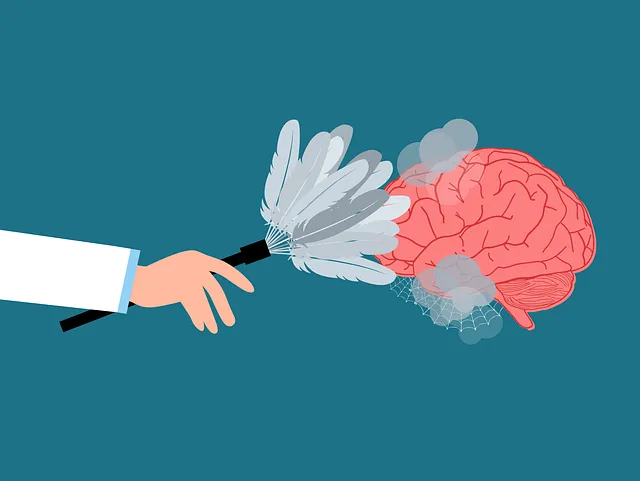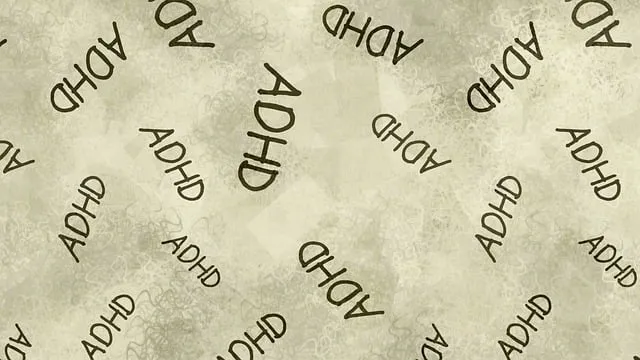Kaiser Permanente's Mental Health Phone Number in Norcal Boulder represents a comprehensive approach to evaluating and enhancing mental wellness programs. By combining quantitative data from surveys with qualitative insights through Empathy Building Techniques and Emotional Intelligence assessments, they gain a holistic view of participant experiences and improvements. This tech-driven method, featuring accessible phone-based coaching, allows for personalized resilience-building exercises and confidential discussions on mental health. Continuous improvement is fostered through data-driven culture, strategic planning, and integration of client feedback, ensuring tailored interventions that maximize the impact of mental wellness initiatives in Norcal Boulder.
Mental wellness program evaluation is a multifaceted process crucial for gauging the impact and effectiveness of interventions. This article explores various methods employed, from traditional quantitative assessments to innovative qualitative techniques. We delve into the successful implementation of Kaiser Permanente’s phone-based evaluations in Norcal Boulder, highlighting its approachability and accuracy. Additionally, we discuss best practices for continuous improvement, emphasizing the power of integrating qualitative and quantitative data for comprehensive mental health program evaluation.
- Understanding Mental Wellness Program Evaluation
- Kaiser Permanente's Approach to Phone-Based Assessments in Norcal Boulder
- Common Methods for Measuring Mental Health Program Effectiveness
- Integrating Qualitative and Quantitative Data in Evaluation
- Best Practices for Continuous Improvement Based on Evaluation Findings
Understanding Mental Wellness Program Evaluation

Evaluating mental wellness programs is a multifaceted process that goes beyond mere satisfaction surveys. It involves assessing the program’s impact on individuals’ emotional well-being, thought processes, and overall mental resilience. At Kaiser Permanente Mental Health Phone Number Norcal Boulder, we understand that effective evaluation requires a holistic approach, capturing both quantitative data and qualitative insights.
Our strategies incorporate Empathy Building Techniques to foster open communication with participants, ensuring their voices are heard. By integrating Emotional Intelligence into our evaluation framework, we can better understand the program’s role in enhancing mental wellness. This involves analyzing improvements in areas such as stress management, emotional regulation, and social connectedness, thereby providing valuable insights for continuous improvement.
Kaiser Permanente's Approach to Phone-Based Assessments in Norcal Boulder

Kaiser Permanente’s approach to phone-based assessments in Norcal Boulder is a shining example of leveraging technology for enhanced mental wellness coaching. They utilize their dedicated mental health phone number to provide accessible and personalized support to their members. Through this service, individuals can connect with trained professionals who facilitate resilience building exercises tailored to their unique needs. The program ensures confidentiality, fostering a safe space for open discussions about various mental health concerns.
This initiative underscores Kaiser Permanente’s commitment to mental wellness coaching programs development. By employing phone-based assessments, they’ve successfully reached a broader audience in Norcal Boulder, offering timely interventions and continuous support. This method has proven effective in identifying subtle signs of distress, allowing for early intervention and better outcomes. Such innovative practices contribute to the ongoing evolution of mental health services, ensuring that folks receive the care they need in today’s fast-paced world.
Common Methods for Measuring Mental Health Program Effectiveness

Evaluating the effectiveness of mental wellness programs is crucial for understanding their impact and making informed improvements. Several common methods are employed to measure success, offering insights into various aspects of mental health. One widely used approach involves self-reported surveys, where participants rate their symptoms, mood, and overall well-being before and after program participation. These surveys can help identify specific areas of improvement or challenges, such as Burnout Prevention in demanding work environments.
Additionally, clinical assessments conducted by professionals provide a more objective measure. Therapists or counselors use standardized tools to evaluate changes in mental health status, ensuring accurate tracking of progress. For instance, the Kaiser Permanente mental health phone number Norcal Boulder might be utilized as a resource for accessing evidence-based services and gauging their effectiveness through client feedback. Beyond individual outcomes, Mental Health Policy Analysis and Advocacy plays a crucial role in understanding program impact on a larger scale, shaping future initiatives to foster better mental wellness in communities.
Integrating Qualitative and Quantitative Data in Evaluation

Integrating qualitative and quantitative data offers a comprehensive evaluation approach for mental wellness programs, such as those provided by Kaiser Permanente Mental Health Phone Number Norcal Boulder. While quantitative methods like surveys and statistical analyses provide objective, measurable outcomes, qualitative techniques including interviews and focus groups offer deeper insights into participants’ subjective experiences and emotional healing processes.
This dual-methodology enables a more nuanced understanding of program effectiveness. For instance, quantitative data might reveal improved symptoms in a cohort of individuals, while qualitative interviews could uncover unforeseen benefits like enhanced coping mechanisms or reduced mental illness stigma reduction efforts. By merging these perspectives, evaluators can better assess the overall impact and identify areas for improvement within mental wellness podcast series production, ensuring tailored interventions that resonate with diverse participant needs.
Best Practices for Continuous Improvement Based on Evaluation Findings

Based on evaluation findings from programs like those offered by Kaiser Permanente mental health phone number Norcal Boulder, continuous improvement is key to sustainable wellness. Organizations should implement best practices that foster a culture of data-driven decision-making, where regular assessments and feedback loops guide program enhancements. This involves utilizing various evaluation methods—from participant surveys to expert reviews—to gather insights into program effectiveness and impact.
By integrating these findings into strategic planning, organizations can refine their mental wellness initiatives. For instance, if evaluations reveal high stress levels among participants, implementing Stress Reduction Methods could become a priority. Similarly, promoting Positive Thinking and encouraging Self-Care Practices based on feedback can lead to more holistic and effective program design, ensuring the continuous improvement of mental health support services.
Evaluating mental wellness programs is essential for gauging their impact and effectiveness, especially in initiatives like Kaiser Permanente’s phone-based assessments in Norcal Boulder. By combining qualitative and quantitative data, organizations can gain valuable insights into the success of their programs. Integrating these methods allows for a comprehensive understanding, ensuring continuous improvement based on evaluation findings. This approach not only enhances the overall mental health services but also aligns with best practices, as demonstrated by Kaiser Permanente’s innovative use of phone-based assessments to reach and support individuals in need.






